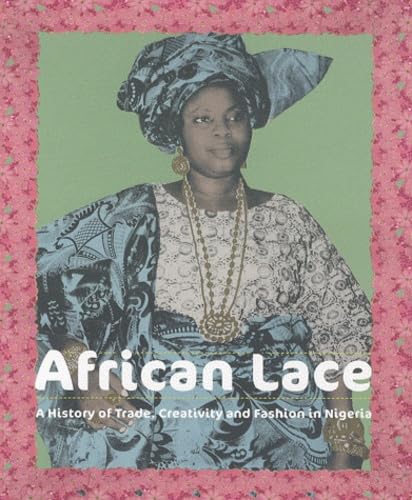Verwandte Artikel zu African Lace: A History of Trade, Creativity and Fashion...

Inhaltsangabe
'African Lace' denotes brightly coloured, industrially embroidered textiles that define the image of Nigerians worldwide. For over fifty years it has been the fabric of choice for festive and format dress styles. This volume is the first to explore the history and cultural significance of this particular fabric in Nigeria. Industrial embroideries have been produced in Austria and Switzerland since the 19th century. The specific designs manufactured for the West African market go back to the early 1960s when commercial relations with the newly independent state of Nigeria began. Since then African Lace has been extremety popular in Nigeria and the resulting clothes have been adopted as 'traditional dress'. This book presents a fascinating chapter in African fashion history and enhances a contemporary aspect of culture that extends beyond the borders of a single nation, interconnecting people, ideas, and creativity through trade. African Lace highlights fashion, creativity, opulence, and the joy of social gatherings in Nigeria.
Die Inhaltsangabe kann sich auf eine andere Ausgabe dieses Titels beziehen.
Von der hinteren Coverseite
Brightly coloured industrially embroidered textiles characterize Nigerian formal attire since the 1960ies.The embroidered fabrics are a transnational creation resulting from nearly fifty years of Austro-Nigerian business relations and the concomitant cultural interaction. Known in Nigeria as Swiss, Austrian or African Lace the embroideries are produced today in Austria, Switzerland, Korea, China and as well in Nigeria. African Lace reconstructs the production and trade history of the industrial embroideries and explores their cultural and social significance in Nigeria. The catalogue also gives an overview over the development of clothing traditions in southwest Nigeria, a style chronology of the Nigerian lace fashion since the seventies and offers insight into the lively society life and vibrant fashion scene in Lagos. The story also touches sociopolitical issues related to the postcolonial history of Nigeria. The attire fashioned out of the expensive imported embroideries was an expression of the prosperity during the oil boom. Criticism on their popularity since the 1970ies became an outlet for the reconsideration of national cultural values that were expected to manifest themselves also in fabrics and dress styles. In spite of the ambivalent attitude in regard to the imported luxury fabrics they remained extremely popular and the cloths fashioned out of them are meanwhile considered as "traditional dress", worn particularly on festive occasions such as naming ceremonies, weddings or funerals. At public appearances of politicians or other persons of prominence at home and abroad the embroidery textiles are omnipresent and define the image of Nigerians worldwide.
„Über diesen Titel“ kann sich auf eine andere Ausgabe dieses Titels beziehen.
EUR 12,55 für den Versand von Niederlande nach Deutschland
Versandziele, Kosten & DauerSuchergebnisse für African Lace: A History of Trade, Creativity and Fashion...
African lace. A history of trade, creativity and fashion in Nigeria.
Anbieter: Antiquariaat Berger & De Vries, Groningen, Niederlande
Paperback. Profusely illustrated, in color. 255 p. -(Minor signs of use to the dust jacket and the fly-leaf, but overall this scarce catalogue is in good condition. ). ISBN 9789461610003. Artikel-Nr. 72922-A-62201
Anzahl: 1 verfügbar
